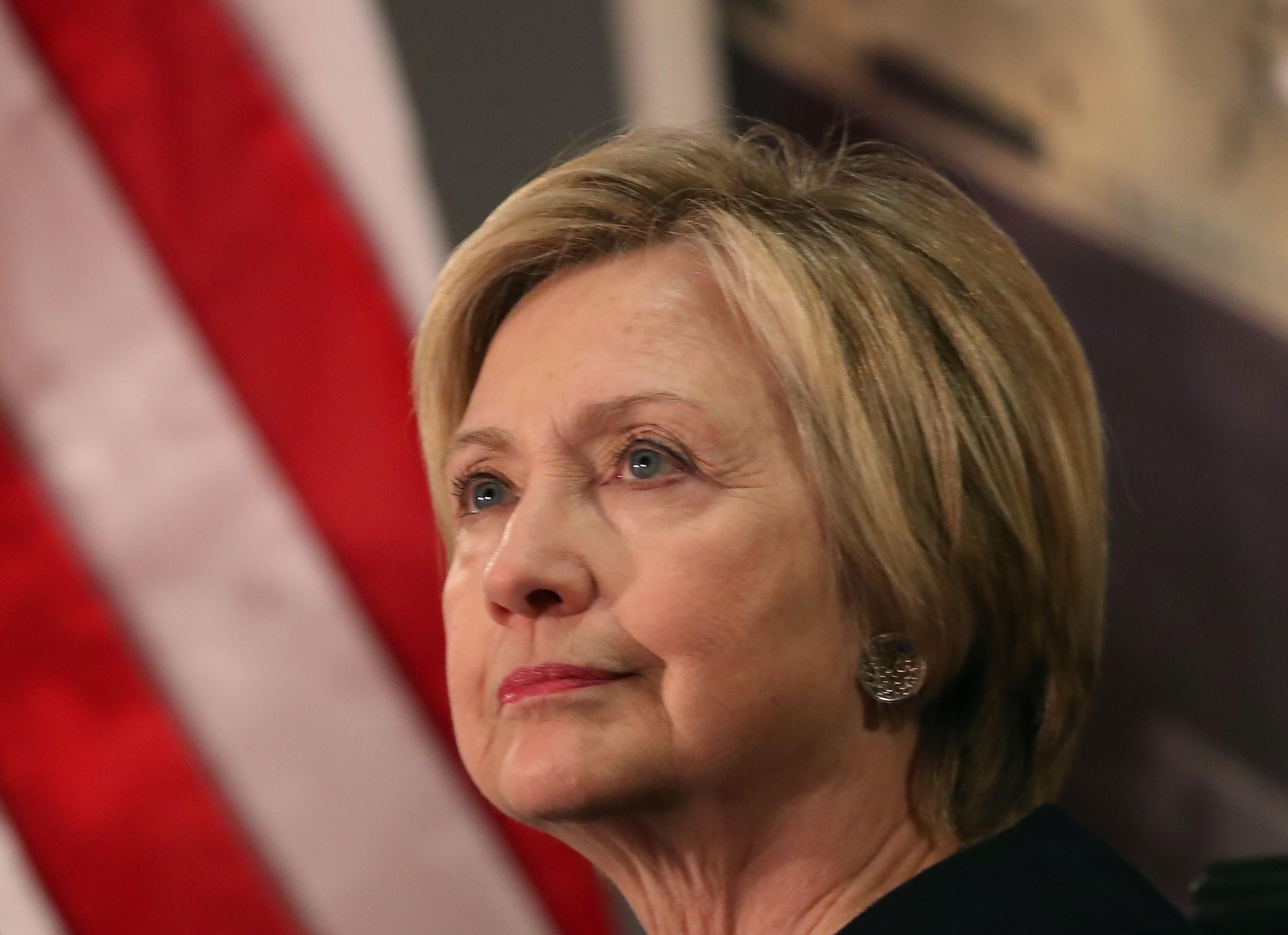Former GCHQ specialist was asked by Republican researcher to verify Hillary Clinton emails hacked by Russia
He was approached around the time Trump was calling for Russia to hack into Clinton's private email server

Your support helps us to tell the story
From reproductive rights to climate change to Big Tech, The Independent is on the ground when the story is developing. Whether it's investigating the financials of Elon Musk's pro-Trump PAC or producing our latest documentary, 'The A Word', which shines a light on the American women fighting for reproductive rights, we know how important it is to parse out the facts from the messaging.
At such a critical moment in US history, we need reporters on the ground. Your donation allows us to keep sending journalists to speak to both sides of the story.
The Independent is trusted by Americans across the entire political spectrum. And unlike many other quality news outlets, we choose not to lock Americans out of our reporting and analysis with paywalls. We believe quality journalism should be available to everyone, paid for by those who can afford it.
Your support makes all the difference.A former GCHQ specialist says he was recruited by a Republican Party researcher to help verify emails apparently hacked from Hillary Clinton’s private server by Russia.
The claims come amid allegations of collusion between Donald Trump’s presidential campaign and Russian intelligence last summer.
Matt Tait said he was approached around the time WikiLeaks published 20,000 hacked Democratic National Committee emails and Mr Trump publicly called for Russia to obtain Ms Clinton's private server emails.
Democratic Congressman Joaquin Castro called for the House Intelligence Committee to hear from Matt Tait as soon as possible on Saturday.
In a post published on the Lawfare national security blog, Mr Tait describes a series of phone calls with political operative Peter Smith, and later with one of his associates John Szobocsan, from July to mid-September 2016.
Mr Smith, a seasoned opposition researcher claiming to work with the Republican Party, said he was searching for the 33,000 emails Ms Clinton deleted from her private server used for official business while secretary of state.
He asked for Mr Tait’s help in verifying the authenticity of emails obtained via the "dark web". Mr Smith said he wanted to make the emails public before the election in November, and expressed indifference at Russia’s potential role in their release, according to Mr Tait.
The American allegedly discussed “his conviction that Clinton’s private email server had been hacked – in his view almost certainly both by the Russian government and likely by multiple other hackers too – and his desire to ensure that the fruits of those hacks were exposed prior to the election.
"They had a reckless lack of interest in whether the emails came from a Russian cut-out,” Mr Tait says in the blogpost.
Mr Smith appears to have known enough details about the Republican campaign to suggest he was closely tied to them.
In a recruitment document from September 2016, he listed officials including Steve Bannon, Kellyanne Conway and then foreign policy adviser Mike Flynn as being associated with his research company. Mr Bannon has denied meeting with Mr Smith.
Mr Smith died just over a month ago at age 81, just ten days after speaking to the Wall Street Journal about his search for Clinton's emails.
He had a long history of tarnishing opponents of the Republican party and had in the past tried to find a woman to claim Hillary Clinton had an illegitimate child.
Mr Tait, who now runs a UK-based security consultancy, believes he was approached because he had publicly studied Hillary Clinton’s emails as well as the hack of Democratic National Congress emails.
The former information security specialist wrote: "My suspicion then and now was that Hillary Clinton’s email server was likely never breached by Russia, and moreover that if Russia had a copy of Clinton’s emails, they would not waste them in the run-up to an election she was likely to win."
He refused to sign a nondisclosure agreement suggested by Mr Smith towards the end of their contact.
Mr Tait admits that he never actually saw the emails described by Mr Smith, and said the late researcher could just have been talking “a very good game.”
Join our commenting forum
Join thought-provoking conversations, follow other Independent readers and see their replies
Comments